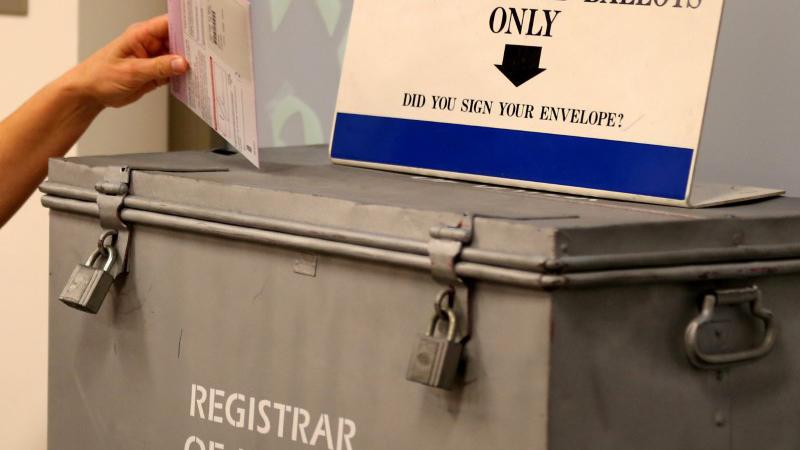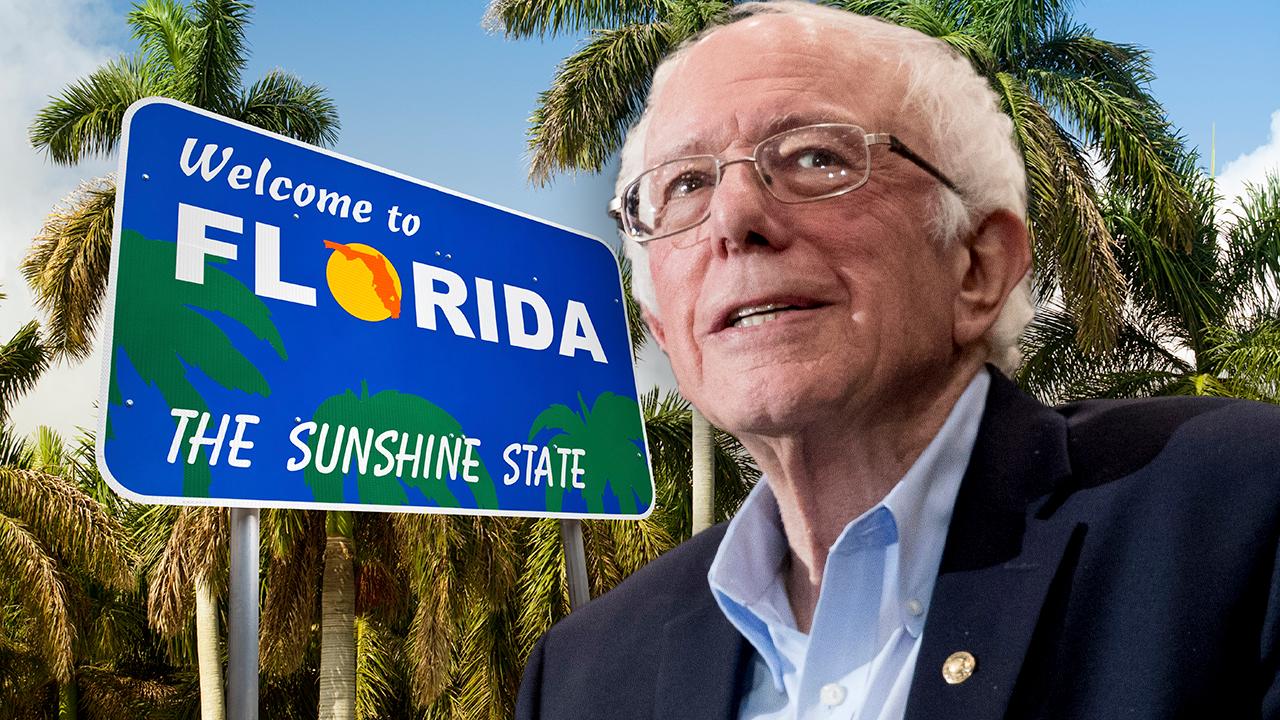Coronavirus fears table Ohio primary after a day long battle
Ohio contest is on hold as Arizona, Florida and Illinois head to the polls
COLUMBUS, Ohio — Ohio called off its presidential primary just hours before polls were set to open there and in three other states, an 11th-hour decision the governor said was necessary to prevent further fueling the coronavirus outbreak that has paralyzed the nation.
Health Director Amy Acton declared a health emergency that would prevent the polls from opening out of fear of exposing voters and volunteer poll workers — many of them elderly — to the virus. Arizona, Florida and Illinois were proceeding with their presidential primaries.
Gov. Mike DeWine failed to get a judge to halt the primary Monday evening, even though the governor contended the election results wouldn't be viewed as legitimate in light of the pandemic.
WILL CORONAVIRUS CRISIS GIVE BIDEN THE UPPER HAND IN NOVEMBER?
“To conduct an election tomorrow would would force poll workers and voters to place themselves at a unacceptable health risk of contracting coronavirus,” he said.
It wasn't clear what would happen, but DeWine said officials were considering how to give voters an opportunity to cast their ballots.
DeWine and Secretary of State Frank LaRose had supported a lawsuit by voters seeking a delay in the primary until June 2, in the hope that the outbreak subsides by then. Ohio Judge Richard Frye ruled against the motion Monday night, saying it was not his place and would set a terrible precedent.
After the on, off, on again and then off again day in Ohio Monday, it now appears that Arizona, Florida and Illinois will be the only states with their presidential primaries on Tuesday. Officials in those states have said they are making preparations to ensure the safety of voters, even as concerns mounted that there will not be enough poll workers in some precincts and voters will be confused after polling places in nursing homes were moved to other locations.
In Illinois, elections board spokesman Matt Dietrich said in a statement late Monday that the state's primary will move forward, even with Ohio's decision. He said Gov. J.B. Pritzker does not have the power to order the date moved and does not intend to ask a court to do so.
“We believe that by following guidance from our state and federal health professionals, voters can vote safely,” Dietrich said.
Catherine Turcer, director of Common Cause Ohio, praised DeWine's decision.
“There’s been a lot of running around and trying to make changes and coming up with solutions and none of them quite worked to keep everyone safe,” she said. “You need to really think outside the box and moving the election is really thinking outside the box.”
But Kristen Clarke, president of the Lawyers’ Committee for Civil Rights under Law, said Ohio could have avoided the delay by extending the deadline to postmark mail-in ballots from Monday to Tuesday.
Now, she said, pushing off the election raises some new concerns. “It’s a last-minute decision. It’s chaotic,” she said. “There is the need to provide full and adequate information to voters regarding the new date.”
Turnout at the polling places is already expected to be light Tuesday as only the Democrats have a contested presidential primary and that is down to two contenders: Joe Biden and Bernie Sanders. Add in that the states were pushing early voting and vote-by-mail even before the outbreak and many fewer voters are expected to appear Tuesday at their neighborhood precinct.
CORONAVIRUS SOCIAL DISTANCING: HOW TO STAY SANE
The states are taking steps to limit voter and poll worker exposure to the coronavirus.
In Florida and Arizona, the states moved polling places located in nursing homes and assisted living facilities to avoid exposing the residents to outsiders. For some counties like Volusia, Florida, and Maricopa, Arizona — by far that state's largest — that became a benefit. The counties combined those polling places with others nearby, meaning they needed fewer workers.
In Arizona, the Republican governor and Democratic secretary of state released a video early Monday outlining the steps they’re taking to keep voters safe. Those include measures to keep distance between people, frequent hand washing by poll workers and disinfecting equipment regularly. They also asked voters to wash hands before and after visiting the polls.
“It’s been a lot of work but it’s well worth it because our democracy is worth it,” Secretary of State Katie Hobbs said in the video.
Broward County, Florida, is stocking its 421 polling locations with extra supplies, including 4,000 rolls of paper towels, gloves and more than 400 bars of soap.
The states have also been pushing early voting and voting by mail as a way to curtail any crowds at the polls. Chicago election officials say the effort paid off with 118,000 voters casting ballots in the mail in the city, which is an all-time record, according to the Chicago Board of Election Commissioners.
CLICK HERE TO GET FOX BUSINESS ON THE GO
Despite the efforts, voters may experience disruptions Tuesday, particularly when polling places first open. In Pasco County, Florida, more than 150 poll workers dropped out, citing fears of the virus. Volunteers from the Tampa Bay-area county's shuttered schools are stepping in, but some polling places are being combined.
Noah Praetz, an elections consultant and former director of elections for Cook County, Illinois, said election officials in Illinois have done everything they can to manage the loss of polling locations and poll workers. But "the early morning hours will likely be shaky in some precincts as heroic poll workers get things up and running short handed."
He said he expected problems would be addressed quickly and hoped the voting process would be operating smoothly by late morning.
For most people, the new coronavirus causes only mild or moderate symptoms, such as fever and cough. For some, especially older adults and people with existing health problems, it can cause more severe illness, including pneumonia. The vast majority of people recover. According to the World Health Organization, people with mild illness recover in about two weeks, while those with more severe illness may take three to six weeks to recover.
GET FOX BUSINESS ON THE GO BY CLICKING HERE





















